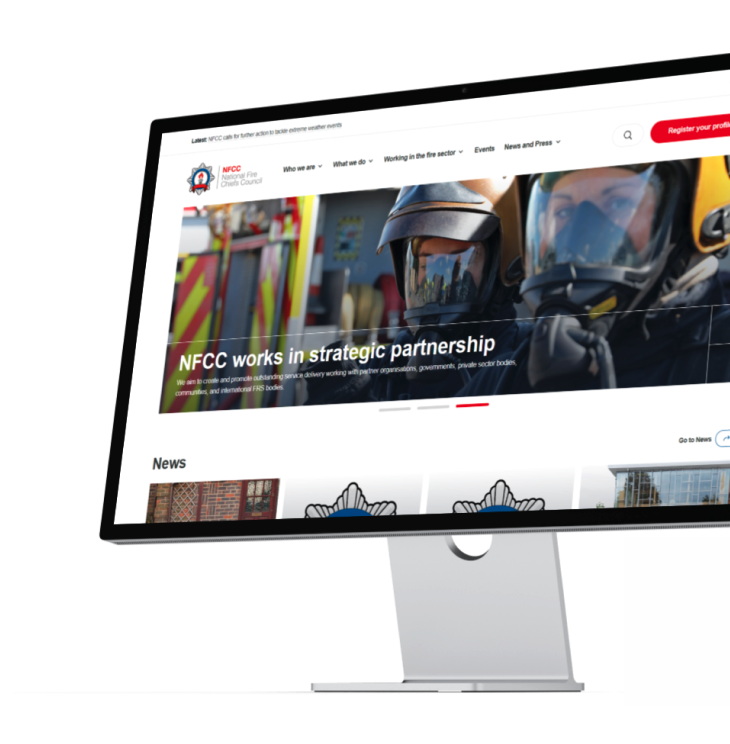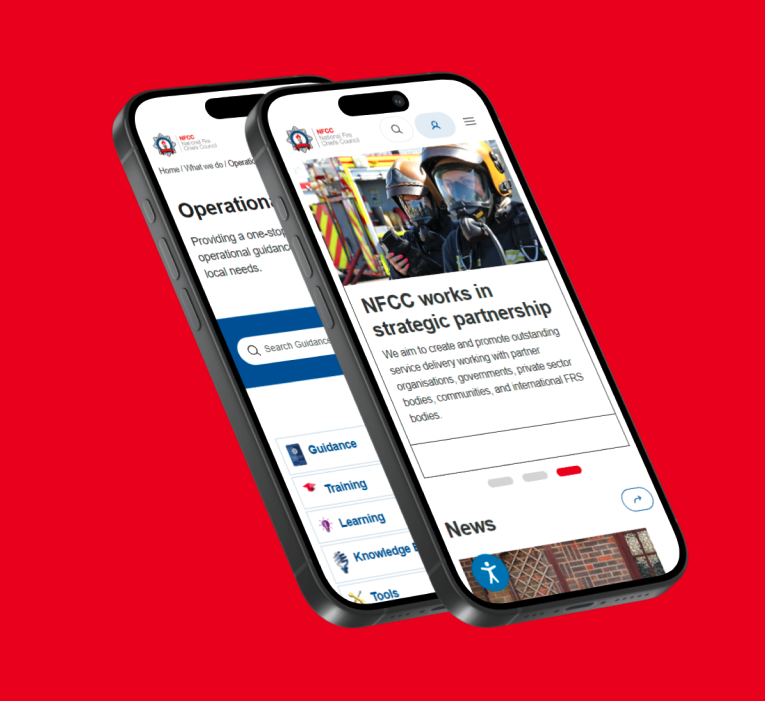The National Fire Chiefs Council
A Bespoke WordPress Platform to Support National Fire Strategy and Sector Collaboration
Get in touch
Background
The National Fire Chiefs Council (NFCC) leads and coordinates national policy, standards, and strategic direction across the UK’s fire and rescue services. Acting as a central hub for operational guidance, best practice, and cross-sector collaboration, NFCC’s digital platform is critical to its role in supporting fire leaders, policymakers, and the wider emergency services community.
NFCC required a modern, secure, and scalable WordPress platform to better serve its wide-ranging stakeholders — from fire chiefs and senior operational staff to central government, partner agencies, and the public. The site needed to balance open information sharing with role-specific access, while aligning with NFCC’s brand and digital communication goals. 6B was appointed to deliver a high-performing, user-focused solution.
The Need
The previous NFCC website was outdated in both design and infrastructure. Content was difficult to manage, and site navigation failed to reflect the diverse needs of its national audience. Hosting arrangements were inflexible, search functionality was limited, and the site lacked the accessibility compliance expected of a modern public-facing body.
NFCC required:
- A fully custom WordPress CMS that was secure, performant, and easy to administer
- A clean, accessible design aligned with WCAG 2.1 AA and PSBAR 2018 standards
- Role-based user permissions for internal contributors and working groups
- The ability to publish structured, multi-format content across hundreds of resources
- Integration with third-party tools including document storage systems and email marketing platforms
- Scalable architecture to support microsites, policy initiatives, and campaign work

The Solution
6B delivered a fully bespoke WordPress platform for the NFCC, developed from the ground up with clean, modular code and a flexible content architecture. We built custom post types and reusable ACF components to handle a wide range of content — including operational guidance, policy documents, event listings, consultation responses, and working group updates.
We implemented granular role-based access within the CMS, allowing NFCC staff and contributors to manage content securely across specific sections. Advanced navigation structures and mega menus were developed to improve discoverability across a deep content library, and a custom search engine was deployed with filtering by document type, theme, and date.
Accessibility was prioritised throughout the design and build process. The platform was audited and tested against WCAG 2.1 AA requirements, with semantic HTML, keyboard operability, colour contrast compliance, and ARIA support built in by default.
The platform integrates with NFCC’s communications tools — including CRM and email campaign software — and supports secure file sharing through a connected document repository. It is hosted in a secure, scalable environment with CDN and caching layers optimised for performance and uptime.
To support ongoing governance and capability building, 6B provided structured onboarding, training materials, and documentation, empowering NFCC teams to manage and evolve the site without third-party reliance.
The Impact
NFCC now has a robust, scalable digital platform that reflects its leadership role across the UK fire and rescue sector. The site’s improved structure and search tools have made it significantly easier for users to find policy documents, national frameworks, and guidance materials — while internal teams benefit from a streamlined, decentralised publishing workflow.
The platform is fully accessible, mobile-optimised, and future-proofed to support new initiatives, microsites, and stakeholder collaboration tools. By investing in a custom WordPress solution built around their specific needs, NFCC has gained the agility, performance, and control needed to continue shaping national fire strategy in a digital-first world.